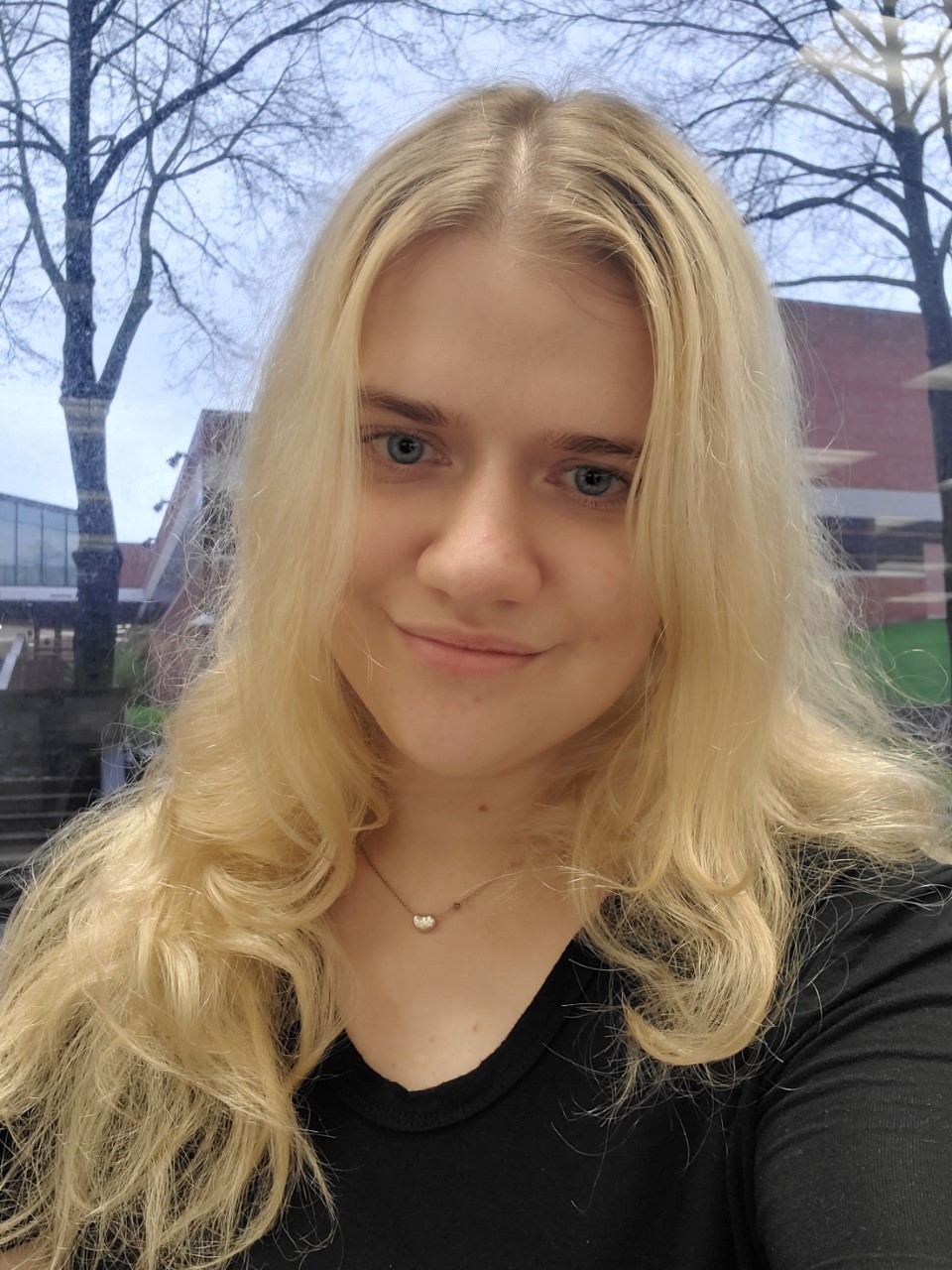
Madison Worden ‘21 grew up on a farm in Binghamton and was in and out of the hospital a lot during her childhood. She found solace in making art. The fact that she could make something that was an extension of herself but was not attached to her life in anyway was cathartic. Her parents say that she has always been creative and see things in a way that other people don’t.
However, Worden was not only interested in arts. Being interested in both arts and design, as well as engineering and research, studying Industrial Design in the School of Design, at the College of Visual and Performing Arts was a natural choice for Worden. Industrial design was a line between design and engineering. A field where she could learn about a lot of different topics and focus on how products are made. Worden says that most designers design without knowing much about how things work.
“I am really interested in knowing how things work and feel like it helps me design better”, says Worden.
When Worden was a 3rd and 4th year student at SU, she was a research assistant working with Dr. Louise Manfredi. The experience taught her how to merge design and engineering.
Over time, she became interested in researching how different technologies – both hardware and software — can be more accessible to people with disabilities.
“At this point, every industry needs to be looking at how their products will either help or hinder people with disabilities,” says Worden. “Most people will be disabled temporarily or permanently some time in their life. Keeping that in mind, will help companies innovate further.”
Accessible design has always been something Worden was interested in. Being very involved with the disability community throughout her whole life, Worden sees how inaccessible the world is to a lot of disabled people. This makes her passionate about accessible designs.
During her first year at Syracuse University, Worden was part of the Invent@SU. She designed a writing aid for people with limited hand function. She learnt that designers need to really recognize whether their inventions are actually helping or handicapping people with disabilities.
How can designers improve people’s lives instead of fixing them? Accessible design isn’t designing things for people with disabilities to adapt to a world built for able bodied people, but is designing for a better quality of life for people with disabilities.
Worden loves designing with that user experience in mind.
“At the end of the day, products are generally forgettable, but experience is memorable.”
Currently, Worden is working on an inclusive card game that can bring people together. The card will have a braille version, and colors and branding will work with vision impairments and more.
There has been a surge of popularity of card games, but Worden thinks there hasn’t been one that have been focusing on accessibility. Card games bring people together generally, not if they aren’t inclusive.
Many neurodiverse people have a problem with creating or maintaining friendships. A lot of non-disabled people also have the problem. This card game aims to help with this. Worden is in the stage of testing and developing a card game and hopes to launch by next year.
Winning the Intelligence ++ competition for the inclusive dating app MeetCute with her partner Natalie Lui, Worden said the experience opened her eyes into the startup world.
“We were designing a fully accessible dating app. We faced some difficulties like raising funds. We were trying to do something that we were not necessarily equipped for yet. We decided we needed to revisit our skills and our original concept, so we let our idea evolve into something that focus on accessibility and bringing people together in a fun and innovative way – the card game.”
The competition introduced her to the Blackstone LaunchPad, located in the Bird Library. Worden says that the LaunchPad definitely gave her confidence to pursue her passions and her only regret is that she didn’t join sooner.
When Worden isn’t busy designing and starting a business, she is busy baking, cooking, working out, motorbikes and watching the Formula 1 races. She hopes to get her very own motorcycle on day – maybe even the 1942 Harley Davidson Knucklehead.
Story by Todd B. Rubin Diversity and Inclusion Scholar Natalie Lui ‘22; photo supplied